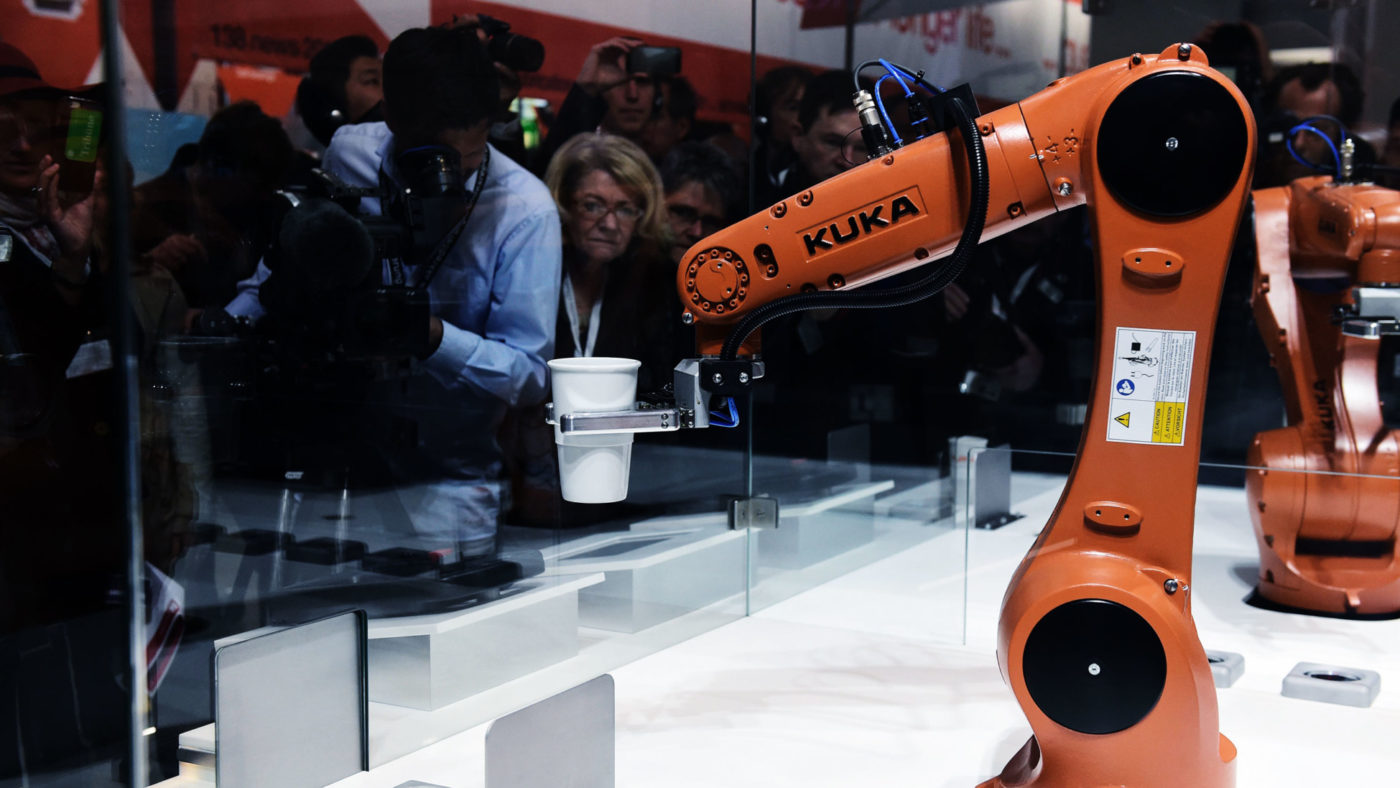Reading any economic section of a newspaper today, you will be met with a blend of positivity in light of the recent wage inflation, but also a harsh dose of fatalism as commentators predict robots will take the place of humans in a future where mass unemployment is the norm. The natural gift most journalists have for hyperbole is not helped by serious organisations like the OECD who claimed this month that 66 million jobs across 32 countries are at risk of automation.
While I don’t doubt the ability of technology to change our economic and social lives, I am less convinced that automation, machine learning and artificial intelligence will replace the need for human interaction and cognitive judgement in our economy. You only have to look at history to understand such predictions are ill-judged.
The agriculture sector is a prime example of an industry where mechanisation replaced the need for human labour. As reaper machines, tractors and grain-milling machines became commonplace on farms, so employment fell. Agricultural employment fell from 1.7 million in 1851 to less than a million in the middle of the 20th century.
In that period industry grew to employ more than a third of UK workers. And as job opportunities in manufacturing declined due to automation, so the service sector grew to employ the almost 30 million people it does today.
The reason to be optimistic about the effect of technology on jobs is also logical – technology increases accuracy and efficiency within production processes, as well as reducing average costs. These increase any firm’s ability to grow its workforce, invest in new products and expand into new markets.
As James Manyika and Michael Spence wrote in the Harvard Business Review in February, “the trade-off between productivity and employment is actually less than it might seem at first, since the GDP bounce that productivity brings will raise consumption and hence labour demand, as it has always done in the past”.
US economist Enrico Moretti predicts that for every job lost to automation and AI, four more will be created (in both high-skilled related roles and low-skilled jobs across the supply chain). So much for the doom-mongering about robots taking everyone’s jobs.
In light of this, it was refreshing to read this week both the House of Lords Committee report on AI in the UK, as well as committee member Matt Ridley’s comment piece in The Times. The report is definitive in its assessment that “many of the hopes and the fears presently associated with AI are out of kilter with reality” and “AI presents a significant opportunity to solve complex problems and potentially improve productivity, which the UK is right to embrace”. It dedicates much time to asking questions around the ability of the current legal code to govern new uses of data and AI. But more significantly the report details how it believes the Government should help accelerate the use of AI across our economy.
Recommendations include a growth fund for SMEs who want to access AI, better mechanisms for spinning AI start-ups out of universities and a special treatment for visa applications of foreign workers with AI-related skills.
These are all perfectly decent ideas, but Matt Ridley hits the nail on the head when he points out that the key to transforming the British economy using AI is ensuring we play to our strengths. He says, “The Germans will make clever washing machines and cars, the Americans and Canadians will concentrate on the internet, the Chinese will get worryingly good at smart espionage, but there is a niche for Britain, a country with a hotspot of world-beating expertise in biomedicine, finance, law and research”.
We can’t compete with America or China on the investment, but we can leverage our world beating universities, legal system, finance and healthcare sector to attract people, ideas and money. The best example of this is British entrepreneur Demis Hassabis and DeepMind which was purchased by Google in 2014.
DeepMind has employed its expertise to help the NHS in better diagnosis and patient fast-tracking. Government should spend more money on research and development and do more to
support SMEs take up new technologies that improve productivity, but the near to medium-term strategy should focus on capitalising on Britain’s strengths in professional services.
This may involve encouraging a culture shift in Britain from fear and fatalism to optimism and optimisation. As Ridley said, “AI will make life richer, better, more interesting”. AI is the future, we need to act fast to become world leaders in our niche.


